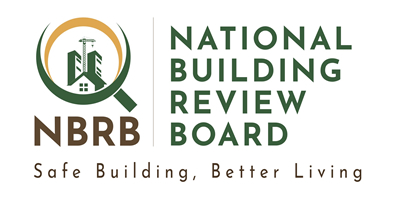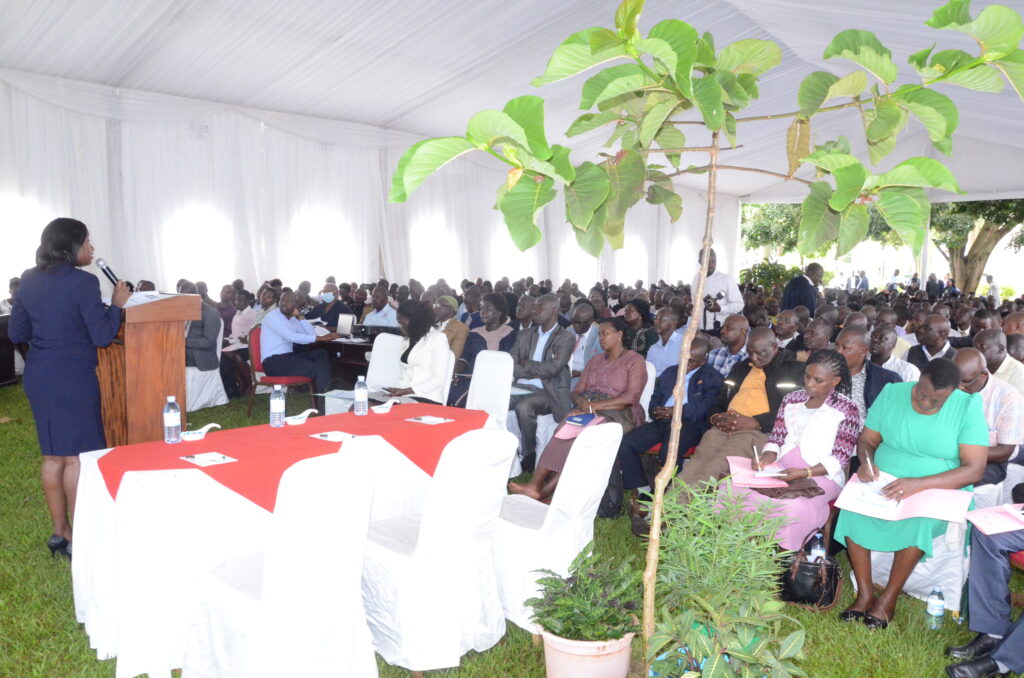For 3 days, over 400 District Education Officers (DEOs), Inspectors of Schools (ISs) and Building Control Officers (BCOs) converged at Nile Resort Hotel in Jinja City for a training on building control and fire safety standards especially in schools. They were drawn from the 11 cities, 31 municipalities and districts across the country.
The first 2 days, focus was on reminding the BCOs of their role in local government, how to scrutinizing architectural, structural mechanical and electrical drawings and the Building Industry Management System (BIMS) an online platform that digitized the building control processes.
Section 32 of the Building Control Act,2013 directs the District Service Commission to appoint for each District Council and Urban Authority a Building Control Officer and such a number of Assistant Building Control Officers as are necessary to enable the Building Committees carry out their functions under this Act.
The functions of the BCOs are provided for under section 33 as to make recommendations to the Building Committee in relation to building plans, specifications of materials and workmanship.
The BCOs are also supposed to forward to the Building Committee for review, copies of all applications for minor building works and their decision on the application and to ensure that any instructions given by a Building Committee are complied with. They also inspect the erection and demolition of any building.
In her remarks the Executive Secretary of the National Building Review Board (NBRB), Eng. Flavia Gutto Bwire reminded the BCOs of their gate keeping role in ensuring that building standards are complied with in their areas.
“Most developers are illiterate and many professionals give them substandard designs and drawings. It is therefore your role as BCOs to satisfy the developer and if you don’t do so, then you are part of the problem”. Eng. Bwire Noted.
On the third day, the BCOs were joined by the DEOs and ISs for sessions about the fire safety standards in schools.
Between May 2023 and May 2023, a multi – sectoral team composed of representatives from the Ministry of Education and Sports, National Building Review Board, Ministry of Gender, Labour and Social Development, Ministry of Kampala and Metropolitan Affairs, Ministry of Local Government, Uganda Police Force and Proprietors of Private Educational Institutions Associations in Uganda was constituted to undertake joint inspections of randomly selected schools in the five regions of the country.
A total of 120 schools were inspected, 50% of which were government owned (30 being primary and 30 secondary) while the other 50% were privately owned (30 being primary and 30 secondary) between May 2022 and May 2023. The study aimed at assessing the status quo and making recommendations on the way forward.
The study revealed that whereas all the schools that were visited were accessible by a fire tender, some of the buildings within some schools could only be accessed with difficulty. Only three schools had carried out a fire safety assessment by the time of the study.
None of the schools had a fire hydrant on site for fire emergencies; however, about 10% had a hydrant in the vicinity while 30% installed fire detection and alarm systems although they did not have adequate coverage. Only 13% of the dormitories were well within the occupancy limits with some one of the dormitories found with an excess of over 70 pupils.
The possible solutions to the fire challenges were suggested during training including de-congesting the dormitories, strict monitoring ans inspection of schools, sensitization of learners and school proprietors and improving the general security around schools among others.
The team was also taken through an online Fire Safety Self-Assessment Kit developed by NBRB to facilitate in assessing fire safety, safety readiness and fire risk management of buildings in schools. This kit can be accessed via https://firesafety.nbrb.ug.
Later the team was inspected and assessed the fire safety standards in selected schools in Jinja City including Jinja SS, Jinja College, PMM Girls School and St James SS where they observed similar fire safety concerns as highlighted in the multi-sectoral study.
The training was presided over by the State Minister for Works Musa Ecweru who tasked the team for avoid lamentations of political interference when executing their responsibilities.
The Permanent Secretary of the Ministry of Education, Ketty Lamaro was represented by the Commissioner Pre- Primary and Primary Doreen Ankunda Tumwebaze.

